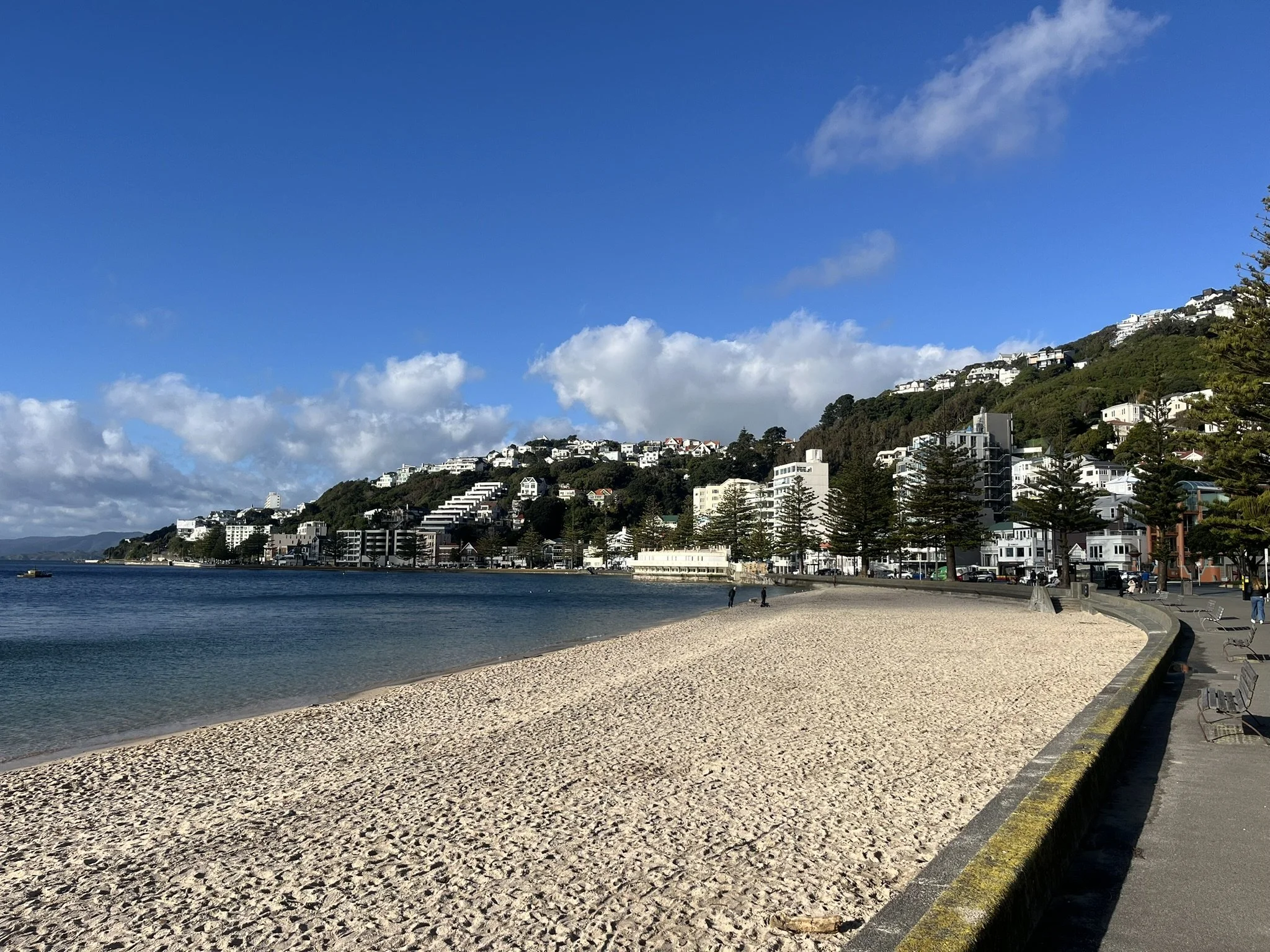What Wellington Renters Should Look Out For in Today's Market
Wellington renters are in one of the strongest positions they’ve been in for years, with the median weekly rent dropping 7% year-on-year, according to Trade Me’s latest Rental Price Index for September 2025. With more properties hitting the market, tenants have greater choice and leverage on their side.
While the market may favour tenants, the choices you make still matter. A favourable market won’t protect you from costly mistakes, stressful rentals, or hidden pitfalls. This guide is designed to help Wellington renters navigate current market opportunities while avoiding potential pitfalls.
The Current Wellington Rental Landscape
Increased Supply:
Several factors have led to a surge in available rental properties. Seasonal fluctuations, properties struggling to sell, and broader economic pressures have all contributed to a larger pool of rental options. This increased supply benefits tenants, giving them more choice and greater leverage when negotiating terms.
Falling Rents:
With more properties on the market, where supply outweighs demand, many landlords are adjusting their rents to attract tenants quickly. In several suburbs, weekly rents have decreased, creating opportunities for renters to secure quality properties at more affordable prices, without compromising on location or quality.
Competition Among Landlords:
Lower tenant demand and higher vacancy rates are seeing landlords actively competing to attract tenants. This often takes the form of incentives such as:
Rent discounts or rent-free periods on longer leases.
Flexible lease terms, allowing shorter or adjustable contracts.
Inclusions of utilities or internet in the rent.
Upgraded appliances or renovations to make the property more appealing.
For the first time in years, tenants can be selective, asking the right questions and waiting for the right property, rather than rushing into the first available option.
Shifting Demand Dynamics:
Wellington’s rental market is heavily influenced by its large population of public sector workers. When the economy faces budget cuts or job losses, demand for rental properties can drop sharply, as people relocate for work or cost-of-living reasons. This makes the rental market in Wellington sensitive to economic fluctuations. While the current conditions favour the tenants, Wellington’s rental demand can be volatile, and the market may shift quickly if the local economy softens.
Red Flags: What To Watch Out For
Even in a tenant-friendly market, not every rental is a good deal. Hidden issues can quickly turn a dream home into a nightmare. Here’s what Wellington renters should keep an eye on.
Properties With Deferred Maintenance:
Some landlords have postponed essential maintenance to cut costs. This can leave tenants dealing with leaks, broken appliances, or unsafe conditions.
What to do:
Look for visible signs of wear and tear: Peeling paint, damp patches, mould or broken fixtures
Ask the landlord or property manager what maintenance has been carried out recently
Enquire about any upcoming work or upgrades planned for the property.
Inadequate Healthy Homes Compliance:
Since 1 July 2025, all rental properties in New Zealand must comply with the Healthy Homes Standards. These cover insulation, heating, ventilation, moisture control, drainage and draught stopping. Not every landlord complies fully; some cut corners, while others delay upgrades to save costs.
What to do:
Always ask to see a Healthy Homes Compliance Certificate
Request evidence of recent work if you are unsure whether a property meets the standards
Use our Healthy Homes Checklist Guide to make sure nothing gets overlooked
Non-compliant homes can be harder to keep warm and dry, and could negatively impact your health.
Unresponsive Property Management:
The quality of property management can make or break your rental experience. Watch for slow responses to enquiries or poorly scheduled viewings; these may indicate a company that doesn’t prioritise tenants.
Pay attention to how enquiries are handled before you apply
Look for property managers who communicate clearly and promptly
Don’t hesitate to walk away if the red flags appear early
Hidden Costs and Unclear Terms:
Unclear lease terms or unexpected fees can lead to unpleasant surprises. Extra charges for things like rubbish collection, water charges, or fixed-term penalties can add up. Make sure you understand what’s included in the rent, and insist on transparency in all agreements. For guidance, refer to our Rental Property Viewing Checklist.
Even in a market that currently favours tenants, smart renting means looking beyond the weekly rent. A little due diligence at the start can save you from stress, financial surprises, and unhealthy living conditions later.
Green Flags: Signs of Quality Rental Properties
While knowing the red flags is vital, recognising quality properties can make your search easier. Quality properties and quality property managers tend to share certain characteristics. Here are what to look out for.
Proactive Property Management:
Good property management goes beyond collecting rent. It means actively looking after both the property and the people who live there.
Look for:
Regular inspections and clearly scheduled maintenance
Clear communication channels (emails or app) for logging issues
Responsive service, with maintenance requests acknowledged quickly and resolved in a timely manner
Professional handling of tenant concerns, showing respect and courtesy
Compliance and Safety Standards:
A safe, comfortable home is non-negotiable, and landlords who invest in compliance usually invest in overall quality.
Look for:
Up-to-date Healthy Homes Compliance
Safety features like working smoke alarms, proper insulation, and adequate fixed heating
Evidence of upgrades, such as modern appliances, new heating systems, or recent insulation improvements
Compliance protects your health, lowering heating costs, and ensures you’re not stuck in a cold, damp, or unsafe property.
Transparent Process:
A clear lease agreement, straightforward application processes, and open communication about property policies are all signs of a trustworthy landlord or management company.
Look for:
Clear lease agreements with no hidden clauses or confusing language
Straightforward application processes, including fair criteria for selection
Open communication about rules, policies, and expectations before you sign
Transparency builds trust and helps avoid problems later on. A good lease should leave no room for unpleasant surprises.
Tenant-Focused Approach:
The best property managers treat tenants as valued clients. Quick response times for maintenance requests and respect for privacy demonstrate a genuine commitment to tenant welfare.
Green flags signal that a property and a landlord are worth holding onto. When you find a rental that ticks these boxes, you’re not just getting a place to live, you’re securing a home where you’ll be respected and looked after.
Making the Most of Market Conditions
Negotiate Wisely:
Even in a tenant-friendly market, negotiation can make a real difference to your rental experience and long-term costs. With lower tenant demand, landlords are often more willing to offer concessions, so don’t be afraid to ask for improvements or perks that enhance your living situation.
However, negotiation requires balance. Know when a deal isn’t offering real value. Sometimes, walking away from a property that looks appealing but has hidden costs, poor management, or unresolved maintenance issues is smarter than accepting short-term savings.
Long-term Thinking:
The weekly rent is an important factor; however, the overall value of a property extends far beyond the price tag. Tenants should consider:
Property Management Quality: Responsive, professional, and tenant-focused management ensures repairs are handled promptly and issues don’t escalate
Maintenance and Upkeep: Well-maintained properties may cost slightly more in rent but save you time, stress, and unexpected expenses over the long term.
Compliance and Safety: Properties meeting Healthy Homes Standards, with proper insulation, heating, ventilation, and smoke alarms, provide peace of mind, are more efficient and offer healthier living conditions.
Liveability and Convenience: Location, amenities, and long-term suitability matter. A slightly higher rent for a property in a safer neighbourhood, closer to work, or with better transport links can pay off in lifestyle and convenience.
Considering service, safety, and long-term comfort, you position yourself to make smart rental decisions that pay dividends beyond immediate savings. In today’s market, a little extra diligence and thoughtful negotiation can turn a ‘good enough’ rental into a great home.
Making Smart Rental Decisions
Wellington’s current rental market is a rare opportunity for tenants. With falling rents and more choice, it’s an ideal time to find a quality property, but it’s important not to compromise on long-term comfort, safety, and peace of mind for short-term savings.
Prioritise properties with proactive management, transparent processes, and compliance with Healthy Homes Standards. With the right approach, you can secure a rental that offers both comfort and peace of mind.
Looking for a rental property managed by a company that values tenants as much as owners? Browse our current rental listings or contact our team to learn more about our tenant-focused approach to property management.


